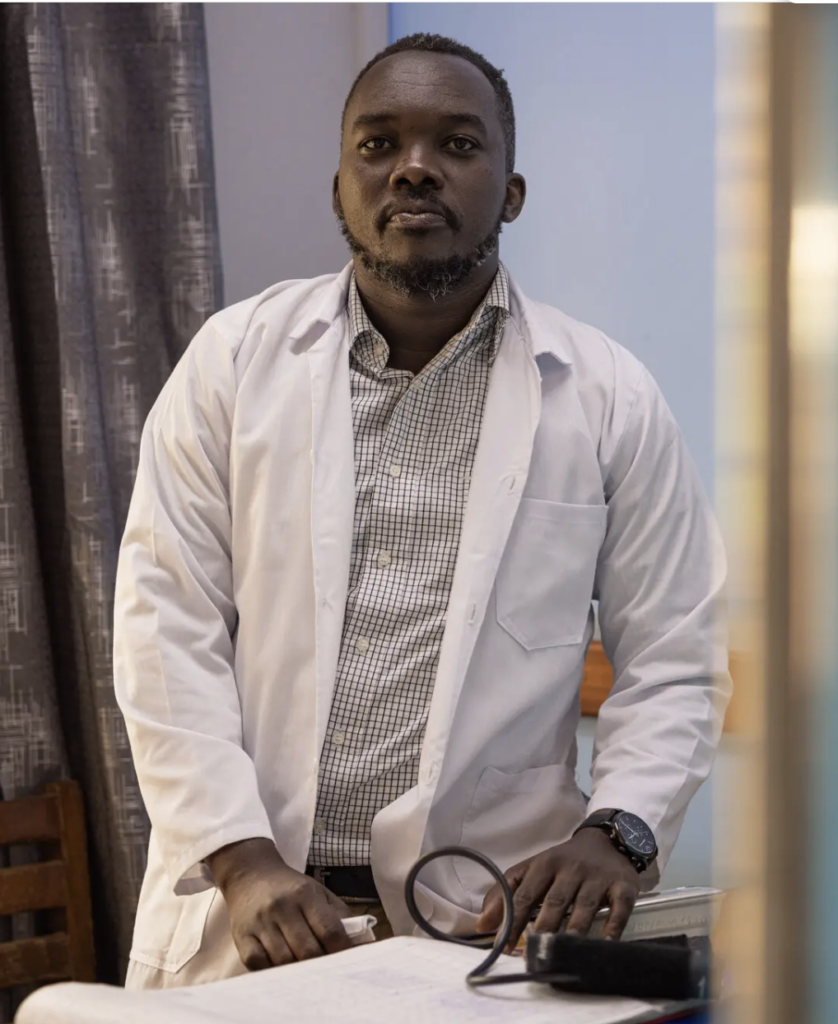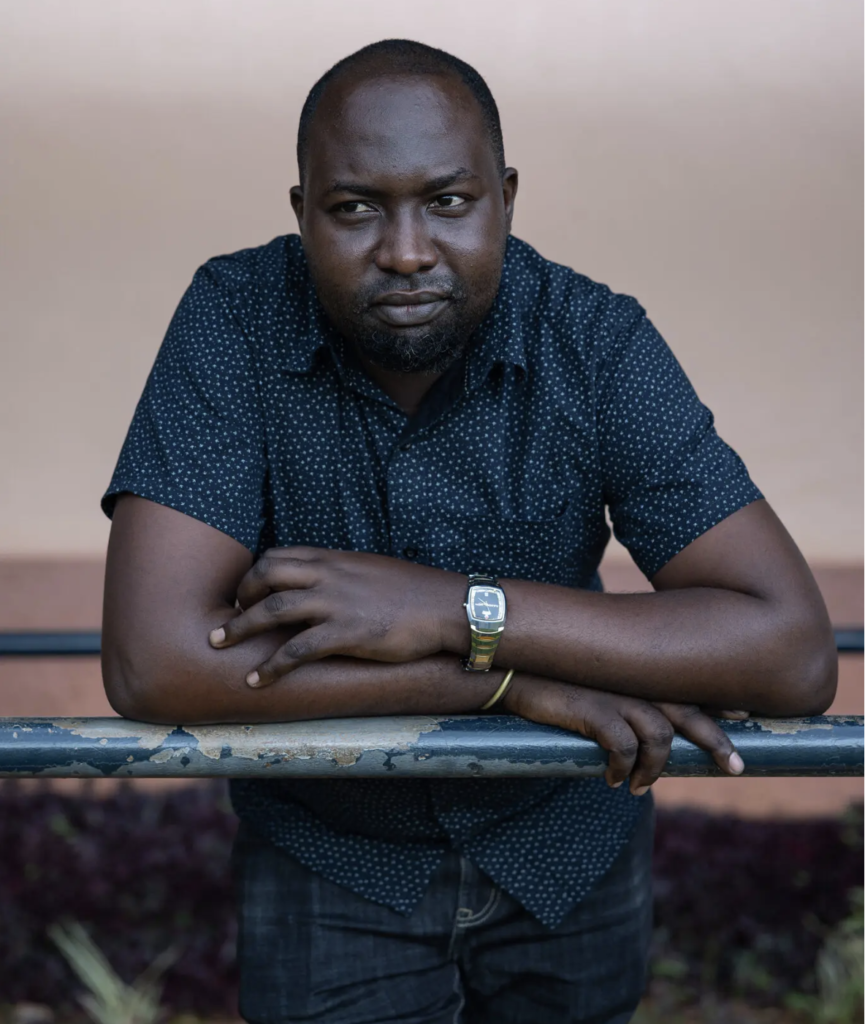Uganda risks HIV upsurge due to harsh new Anti-Homosexuality Law
Colin Stewart is a 45-year journalism veteran living in Southern…
Some LGBTQ citizens are denied medical care; other are afraid to go to HIV clinics.
New York Times reporter Apoorva Mandavilli traveled to Uganda and talked to more than 30 citizens and medical providers about the health impacts of the country’s anti-LGBTQ legislation. Here’s what she learned.
This article consists of extensive excerpts from an article published in mid-January:
With Harsh Anti-LGBTQ Law, Uganda Risks a Health Crisis

The country had made great progress against H.I.V. Now terrified patients have fled clinics, and experts fear a resurgence.
By Apoorva Mandavilli
For decades, Uganda’s campaign against HIV was exemplary, slashing the country’s death rate by nearly 90 percent from 1990 to 2019. Now a sweeping law enacted last year, the Anti-Homosexuality Act, threatens to renew the epidemic as LGBTQ citizens are denied, or are too afraid to seek out, necessary medical care.
The law criminalizes consensual sex between same-sex adults. It also requires all citizens to report anyone suspected of such activity, a mandate that makes no exceptions for health care providers tending to patients.
Under the law, merely having same-sex relationships while living with HIV can incur a charge of “aggravated homosexuality,” which is punishable by death.
Anyone who “knowingly promotes homosexuality” — by hiring or housing an LGBTQ person, or by not reporting one to the police — faces up to 20 years in jail. Scores of Ugandans have been evicted from homes and fired from jobs, according to interviews with lawyers and activists.

Entrapment and blackmail — sometimes by the police — are rampant in person, on social media and on dating apps, according to interviews with dozens of people.
LGBTQ people, and the advocates and health care workers helping them, have been subject to threats and violence.
The law has brought global condemnation and has dealt a significant blow to Uganda’s economy. But it is widely popular among its citizens. Many Ugandans see homosexuality as a Western influence and the law as a corrective.
In response to pressure from global health organizations, the Ugandan health ministry in June guaranteed health care to anyone regardless of orientation or identity. It did not promise that patients would be safe from prosecution.
The country’s health ministry did not respond to multiple requests for comment on the act’s impact on public health.
In interviews, dozens of LGBTQ people, advocates and health care providers in Uganda say they feared that the legislation has had a devastating effect on public health. Although firm data are hard to find, clinics and hospitals estimated that the number of people coming in for HIV testing, prevention or treatment has dropped by at least half.
Some shelters for people living with HIV have closed, and some centers that once dispensed HIV services on a walk-in basis now see clients for limited hours, often only by appointment, to minimize the chance of raids.
Dozens of health care providers and patients have been arrested.
“The government has tried very hard to create the impression that the Anti-Homosexuality Act is not really being enforced, that it is not an actual threat to LGBT people, but that’s not true,” said Justine Balya, a director at the Human Rights Awareness and Promotion Forum, which represents many of those arrested.
Uganda had been at the forefront of HIV research and public health policy. The new law requires scientists to reveal the identities of study participants.
Gay and bisexual men living in countries that enforce laws criminalizing homosexuality are 12 times as likely to be living with H.I.V. as those in the rest of the world, according to a recent U.N. report.
“We are suffering so much, and our life is in danger,” said Nathanian Issa Rwaguma, 34, a gay man and an activist.
Western supporters have offered few resources needed to protect LGBTQ people, particularly those who have been outspoken, several said. “Do you expect a dead human-rights defender, or an alive one?” asked Hajjati Abdul Jamal, a 29-year-old transgender woman, referring to aid organizations.
Many Ugandans who have been arrested were not charged under the act, but instead with being a “common nuisance,” having “carnal knowledge against the order of nature” or sex trafficking, even when the so-called trafficking means moving from the living room to the bedroom of the same house, Ms. Balya said.
Nearly all of those arrested are released after about a week, but a few could remain imprisoned for years awaiting trial, she added.
In March, three gay men and three transgender women who worked as HIV educators were arrested in Jinja, a city in eastern Uganda.
They spent four months in prison enduring sexual harassment, beatings and two rounds of forced anal examinations, according to the doctor who runs the clinic where they worked and their lawyers. One educator was so severely lashed with a cane that she could not sit or lie down for two weeks.

In November, Mulindwa Benda, 24, a transgender man and educator, was in Busia, at the Uganda-Kenya border, to lead a workshop on sexual and reproductive health. He was charged with promoting homosexuality.
The police ridiculed him for “dressing like a man,” and held him for 72 hours in a tiny jail cell with eight women and a toilet that did not flush, Mr. Benda said in an interview.
Arrests of health outreach workers
Outreach workers in Lugazi, Mbarara and several other towns have been arrested for distributing lubricants and condoms. Police officers often associate the products with same-sex intimacy.
“It’s part of the overall climate of persecution and violence that strikes fear into health workers, as well as gay and bisexual men and trans women who need supportive, stigma-free HIV services,” said Asia Russell, executive director of the advocacy group Health Gap.
About 13 percent of Ugandan men who have sex with men are living with H.I.V. Many are now cut off from care.
Mulago Hospital’s clinic for sexually transmitted diseases, among the largest in Kampala, used to treat more than 100 LGBTQ patients a day. Now, fewer than half come into the clinic, said Dr. Afunye Anthony Arthur.
“The others hide out, so you have to look for them,” he said.
To make visits safer for clients, Ark Wellness Hub, a clinic in Kampala, now stays open late into the evening and offers private appointments.
Although three of the clinic’s seven staff members have been evicted from their homes, “you have to find a way of going ahead with your work,” said Brian Aliganyira, its executive director.
Some clinics have resorted to stashing lubricants out of sight or using euphemisms to refer to them. At many clinics, staff and volunteers continue to provide care, spending their own money to deliver medications.
Still, hundreds of patients have dropped out of contact with Mulago and Ark Wellness. Some are sex workers who might pass the HIV to others as their virus levels rise without treatment, Dr. Afunye said.
In an interview, a 32-year-old gay man said he had taught shoemaking but was forced to leave his job in July after he was accused of promoting homosexuality at the school. He was diagnosed with HIV in 2021 and took his last anti-viral pill on Dec. 6.
Two of his friends died in August of HIV-related complications after discontinuing treatment. But he was still too afraid to go to a clinic: Another friend was stoned to death in his village in Masaka district, he said, after an acquaintance recognized him on public transportation.
Ugandan police have falsely accused activists or educators — like those arrested in Jinja — of recruiting children into homosexuality and making pornographic videos. Some government officials also have conflated homosexuality with pedophilia.
“If you start raping children and so on, we kill you,” Mr. Museveni said last year of the law.
Dr. Jane Aceng, the health minister, celebrated the passing of the law. “Our culture and dignity is upheld and the Ugandan Children Protected,” she wrote on X.
The criminalization of homosexuality actually is a leftover of colonialism and takes Uganda out of step with the rest of the world, said Matthew Kavanagh, director of the Global Health Policy and Politics Initiative at Georgetown University.
The President’s Emergency Plan for AIDS Relief provides more than $400 million in HIV.funding to Uganda each year. More than 96 percent of that is implemented by organizations outside the Ugandan government.
Now the Biden administration has redirected $5 million of the rest away from the government, Ambassador Popp said.
Sanctions for human rights abuses
As of Jan. 1, the United States has removed Uganda’s access to the African Growth and Opportunity Act, which provides duty-free access to the U.S. market. Washington has also sanctioned Johnson Byabashaija, commissioner general of the Uganda Prisons Service, for torture and human rights abuses.
But Dr. Kavanagh and other experts said the Biden administration could do more to impose financial sanctions or pressure the Ugandan government to repeal the law.
Mr. Byabashaija’s sanction was based in part on evidence from the March 2020 arrest of Henry Mukiibi, who leads an HIV clinic and shelter, along with 19 others.
The group was held for 52 days, during which they were tortured and beaten; some had their genitals burned with a piece of firewood, Mr. Mukiibi said in an interview.
“Whenever I talk about this instance, I get nightmares,” he said. “It traumatized me.”
Last July, the organization was again raided and the clinic was shut down. Undeterred, Mr. Mukiibi has moved to a new secure location.
Mr. Mukiibi said he felt it was important to speak up. “Sometimes when we hide things, or when the person who’s speaking becomes anonymous, people don’t understand the exact situation you’re passing through,” he said.
For more information, read the full article, “With Harsh Anti-L.G.B.T.Q. Law, Uganda Risks a Health Crisis”.




